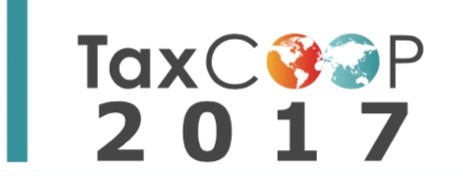Tax
Since 2011, DFI has been working intensively on international and national taxation as a key sustainable source of funding to fight poverty and inequality. In 2011, it assisted 30 Francophone developing country governments to lobby successfully for France to introduce a financial transaction tax, which has so far mobilised US$5 billion to fund global development, and has been agreed in principle by 11 other European governments. It has also been lobbying for increased use of carbon taxes.
Since 2013, DFI has produced analysis and advocacy tools for OIF member states, and for CSOs including Oxfam, to support a dramatic increase in tax revenues for developing countries, through fundamental changes in global tax rules. The conclusions of this analysis, based on a comprehensive database of national and global tax trends, were presented at key global meetings in Addis Ababa and Berlin in 2015.
Since then, Francophone ministers have been lobbying for further global policy changes going well beyond anti-Base Erosion and Profit Shifting (BEPS) and information exchange initiatives, by:
- stopping the race to the bottom on corporate and personal income tax rates;
- ending publication of Doing Business rankings, which promote sharp corporate tax cuts;
- dramatically reducing tax exemptions especially for profitable private sector projects (including those funded by development financing institutions such as the IFC);
- renegotiating bilateral and multilateral tax and investment treaties to ensure developing countries get a fairer share of taxes from their products and resources; and
- improving the content and progressivity of tax technical assistance offered by the IMF, World Bank, OECD and United Nations.
This work has led to concrete commitments by the international organisations to broaden global tax discussions to cover treaties and the race to the bottom, to review and increase their technical assistance, to review the Doing Business methodology and to reduce IFC tax exemptions.
In 2015-16, DFI has also been supporting countries to build capacity to change their own national policies, organising seminars with the OIF for more than 20 countries (in cooperation with a wide range of international and regional organisations and CSOs) to learn and exchange best practices on issues such as tax exemptions, tax treaties, tax audits, and extractives taxation, and focussing in particular on making taxation more progressive and redistributive to fight poverty and inequality. Based on the priorities emerging from these seminars, it has also helped Francophone governments to input strongly into the design and implementation of multiple global programmes of tax technical assistance. The lessons of all of this work will be published in September 2017 by the OIF.
Finally, in 2016, it has produced comprehensive assessments of the degree to which 152 countries’ tax policies are progressive and fighting inequality, and of how well international organisations including the G20, IMF, OECD, UN and World Bank are doing in helping countries to introduce progressive tax policies.
Latest work DFI carried out in this area:
17-20 October 2017 - UN Tax Committee Meeting Discusses Taxing Donor Projects, Geneva
 DFI and OIF attended the 15th meeting of the United Nations Committee of Experts on International Cooperation in Tax Matters in Geneva. This was the first meeting of the new committee appointed in 2017 and it aimed to set the agenda for the committee’s work for the next few years, given its expanded mandate and budget following the Addis Ababa Conference on Financing for Development.
DFI and OIF attended the 15th meeting of the United Nations Committee of Experts on International Cooperation in Tax Matters in Geneva. This was the first meeting of the new committee appointed in 2017 and it aimed to set the agenda for the committee’s work for the next few years, given its expanded mandate and budget following the Addis Ababa Conference on Financing for Development.
The committee focussed its discussions on three areas of key concern to members of the OIF Finance Ministers’ Network: environmental taxation, taxing the digital economy and taxing donor-funded development projects. OIF intervened on the last set of issues, underlining the strong concerns of the Network that such projects (especially those which support highly profitable private sector enterprises) should not benefit from tax exemptions. The background papers for the meeting are available here.
16 October - TAXCOOP Conference 2017: How African Regional Cooperation is Protecting Tax Revenues
 DFI chaired a session of the TAXCOOP conference 2017 in Geneva, organised by OIF, in which Francophone West African representatives from CREDAF, WAEMU and the Government of Senegal discussed their experiences in using regional cooperation and common tax treaties to fight against the global “race to the bottom” in corporate and personal income tax rates.
DFI chaired a session of the TAXCOOP conference 2017 in Geneva, organised by OIF, in which Francophone West African representatives from CREDAF, WAEMU and the Government of Senegal discussed their experiences in using regional cooperation and common tax treaties to fight against the global “race to the bottom” in corporate and personal income tax rates.
They emphasised that while they have had considerable successes in both agreeing common policies on tax rates and coverage and providing mutual capacity-building on tax collection, continued success will depend on cooperation by OECD countries and international organisations in renegotiating tax treaties, and ending tax exemptions on donor projects and for foreign investors, so that national tax authorities are able to collect higher levels of income taxes from the same rates. For details of the conference, whose proceedings will be published eventually in book format, see here.








